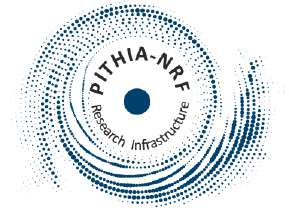The Journal of Space Weather and Space Climate (JSWSC) opens a Topical Issue "Severe space weather events of May 2024 and their impacts", deadline 28 February 2025.
The space weather events of May 2024 were in many aspects the strongest of the last two decades, as indicated by comprehensive measurements and impacts recorded worldwide. This series of events was initiated by the solar active region NOAA 3664, which gave rise to numerous large flares, some having exceeded the X5 level, and associated moderately large fast coronal mass ejections (CMEs). Many of them were Earth-directed and several exceeded 1000 km/s launch speed.
Due to the rapid succession and varying launch speeds, several CMEs merged and interacted as they travelled through the interplanetary medium, leading to enhanced effects on the Earth's space environment. They gave rise to a geomagnetic storm commencing on 10 May which rose to the G5 level persisting through subsequent days with observable auroras at low magnetic latitudes (well below 50°) in both hemispheres.
These space weather conditions resulted in strong radio blackouts, a moderate solar energetic particle event, including GLE 74 early on 11 May 2024, and radiation-belt enhancements throughout the following days.
Reports from around the globe suggest impacts on critical national infrastructures. Also, a degradation of GNSS systems' performance was clearly seen across several countries.
This topical issue welcomes submissions focusing on these events, across various domains which include, but are not limited to, observations, simulations/modeling, and impacts, that cover all aspects of these severe space weather events throughout the first half of May 2024.
Manuscripts must be submitted via the JSWSC online submission tool. Guidelines for submission of papers are found on the JSWSC website under the tab "Instruction for Authors".
Deadline: 28 February 2025
All manuscripts will be peer-reviewed according to the quality standards of international scientific journals. The type of contributions must fit the style of JSWSC. All manuscripts should contain enough new insight, present the results against a properly referenced background of existing work, and present adequate evidence that supports the conclusions. Accepted papers are published upon review and acceptance, without waiting for the other papers, and are freely available to everyone via the JSWSC website. JSWSC offers the possibility to include electronic material, such as animations, movies, codes and data.
Topical Editor-in-Chief (T-EiC):
- Jaroslav Urbář (urbar(at)ufa.cas.cz), Institute of Atmospheric Physics, CAS, Czech Republic
Topical Editors (TE):
- Mateja Dumbovic (mateja.dumbovic(at)geof.unizg.hr), Hvar Observatory, Faculty of Geodesy, University of Zagreb, Croatia
- Lauri Holappa (lauri.holappa(at)oulu.fi), University of Oulu, Finland
- Paolo Romano (paolo.romano(at)inaf.it), INAF - Osservatorio Astrofisico di Catania, Italy
- Iulia Chifu (iulia.chifu(at)uni-goettingen.de), University of Göttingen, Germany
- Jens Berdermann (jens.berdermann(at)dlr.de), German Aerospace Center, Germany
- Stefan Hofmeister (stefan.hofmeister(at)columbia.edu), Columbia University, USA
- Miroslav Hanzelka (hanzelka(at)gfz-potsdam.de), GFZ Potsdam, Germany
For questions regarding this Topical Issue, please, contact the T-EiC. For questions concerning the submission process, please contact the Editorial Office (jswsc(at)edpsciences.org).






